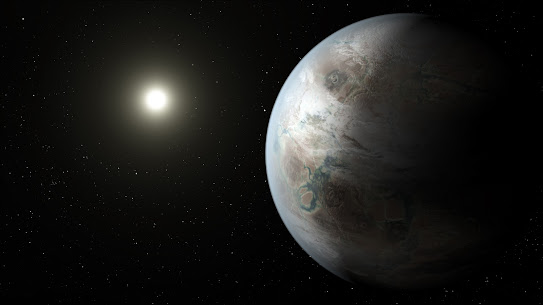'' THE ECOSYSTEM 2011 '' : On The World Students Society - for every subject in the world - the Global Founder Framers would be well advised to study the working of the Universe.
The Founders are likely to get unique insights on how to go about building The Ecosystem 2011 of The World Students Society, on a global basis.
HOW many planets have been found, and how many more are out there ?
TIME WAS, there were only nine known planets in the entire universe - the gaggle of worlds that orbit our sun. That number was reduced twilight in 2006, when the International Astronomical Union busted Pluto down to a dwarf planet.
But even before Pluto was pink-slipped, the planetary census far deeper in space began to grow, with the discovery, in 1992, of a planet orbiting a rapidly spinning pulsar ; and later, in 1995, of a Jupiter-like planet orbiting a sunlike star.
Since then the planetary population has exploded, and, as NASA's Jet Propulsion Laboratory recently reported, the official total of known worlds beyond our own has now topped 5,000.
The majority of the discoveries were made by the Kepler space telescope. Launched in 2009, it hunted for planets using the so-called transit method- looking for the slight dimming in light that occurs when an orbiting planet briefly blocks light from the star.
The dimming is fantastically subtle. Former Kepler mission director Natalie Batalha described it to TIME as the equivalent of removing a single light bulb from a board of 10,000 of them.
And Kepler studied only a tiny portion of the sky, encompassing just 150,000 stars.
Still, in the 11 years it operated, it confirmed the existence of 2,709 exoplanets and has returned data still being studied about a possible 2,057 more.
The newer Transiting Exoplanet Survey Satellite [ TESS ], launched in 2018, also uses the transit method, but equipped with multiple telescopic eyes, allowing it to scan the entire bowl of the sky.
In just the short time it's been operating, it has confirmed the existence of 203 more exoplanets and has spotted another possible 5, 459 that astronomers are now investigating.
This Publishing continues to Part [2] in the future. !WOW! thanks Jeffrey Kluger.

.png)


0 comments:
Post a Comment
Grace A Comment!